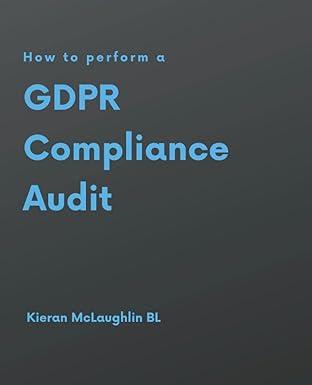Beauda Medical Center Lance Popperson woke up in a sweat, with an anxiety attack coming on. Popperson popped two anti- anxiety pills, lay down to try to sleep for the third time that night, and thought once again about his dilemma. Popperson is an associate with the accounting firm of Hodgins and Gelman LLP. He recently discovered, through a casual conversation with Brad Snow, a friend of his on the audit staff, that one of the firm's clients managed by Snow recently received complaints that heart monitoring equipment was malfunctioning. Cardio-Systems Monitoring, Inc. (CSM), called for a meeting of the lawyers, auditors, and top management to discuss what to about the complaints from health care facilities that had significantly increased between the first two months of 2013 and the last two months of that year. Doctors at these facilities claimed that the systems shut off for brief periods, and in one case, the hospital was unable to save a patient who went into cardiac arrest. Popperson tossed and turned and wondered what he should do about the fact that Beauda Medical Center, his current audit client, plans to buy 20 units of Cardio-Systems heart monitoring equipment for its brand-new medical facility in the outskirts of Beauda Questions Assume that both Popperson and Snow are CPAs. Do you think that Snow violated his confidentiality obligation under the AICPA Code by informing Popperson about the faulty equipment at CSM? Why or why not? As a licensed CPA firm, do you think Hodgins and Gelman has any ethical responsibilities in this regard? Popperson has not told anyone connected to the Beauda Medical Center audit about the situation at CSM. What do you think he should do with the information? Be sure to consider Popperson's ethical obligations in answering this question. How might Hodgins and Gelman be affected by what Popperson decides to do? Assume that Popperson informs the senior auditor in charge of the Beauda Medical audit, and the senior informs the manager, Kelly Kim. A meeting is held the next day with all parties in the office of Ben Smith, the managing partner of the firm. Here's how it goes: Ben: If we tell Beauda about the problems at CSM, we will have violated our confidentiality obligation as a firm to CSM. Moreover, we may lose both clients. Kelly: Lance, you are the closest to the situation. How do you think Beauda's top hospital administrators would react if we told them? Lance: They wouldn't buy the equipment. Ben: Once we tell them, we're subject to investigation by our state board of accountancy for violating confidentiality. We don't want to alert the board and have it investigate our actions. What's worse, we may be flagged for the confidentiality violation in our next peer review Kelly: Who would do that? I mean, CSM won't know about it, and the Beauda people are going to be happy we prevented them from buying what may be faulty equipment. Senior: I agree with Kelly. They are not likely to say anything. Ben: I don't like it. I think we should be silent and find another way to warn Beauda Medical without violating confidentiality, Lance: What about contacting the state board for advice? What would you recommend the firm do in this matter? Why? What do you think about Lance's suggestion to contact the state board for advice on the matter? Is that the function of a state board of accountancy? Are there any other parties that might be contacted to provide guidance on this matter









